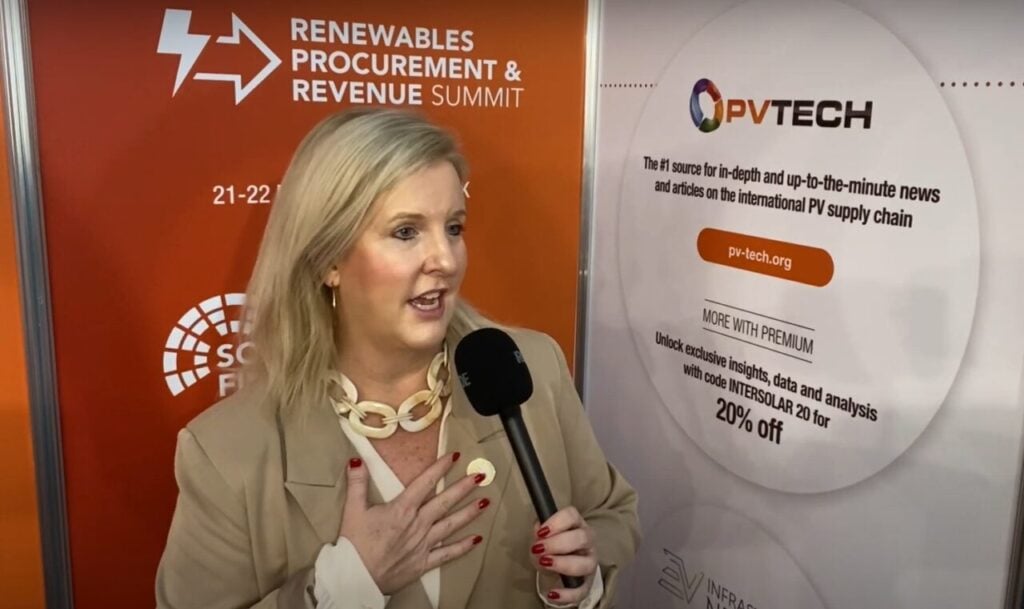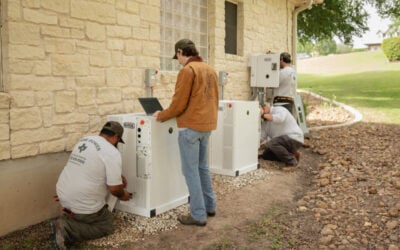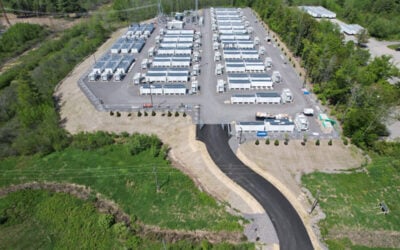
US Senators are expected to begin voting on the tax reconciliation bill today, following a draft published on Friday that came down hard on clean energy tax credits.
Sometimes described colloquially as ‘vote-a-rama,’ the marathon debate was widely expected to commence at 9am in Washington DC. Dubbed the ‘One, Big, Beautiful Bill Act’ by the Trump administration, it is aimed at enacting the president’s 2017 spending and tax cut agenda from his first term.
The bill is being pushed through the reconciliation process, which means Republicans only require a simple majority to get it through the Senate. A Senate vote over the weekend to trigger the final ‘vote-a-rama’ after a 940-page proposal was published was won 51-49, with two Republican Senators voting against it.
Latest reconciliation bill proposal includes tax hikes, retroactive action on prohibited foreign entities
The new draft terminates the Section 45Y production tax credit (PTC) and Section 48E investment tax credit (ITC) for wind and solar PV placed into service after 31 December 2027.
Try Premium for just $1
- Full premium access for the first month at only $1
- Converts to an annual rate after 30 days unless cancelled
- Cancel anytime during the trial period
Premium Benefits
- Expert industry analysis and interviews
- Digital access to PV Tech Power journal
- Exclusive event discounts
Or get the full Premium subscription right away
Or continue reading this article for free
Section 25 residential clean energy and energy efficiency tax credits will not be applied to purchases made after 31 December 2025.
As with the most recent previous iteration of the bill, which the Senate has just voted on this weekend, it appears that tax credits will remain in place for energy storage facilities. BloombergNEF analyst Isshu Kikuma had told Energy-Storage.news previously that the removal of ITCs would lead to “plummeting” installation rates in the US across the various clean energy technologies.
However, rules on material assistance from foreign entities of concern (FEOC) look set to be put in place across the board. Energy storage is the clean energy sector most dependent on importing materials and components from China, while rules pertaining to energy storage projects that benefit from assistance from prohibited foreign entities are particularly strict.
Abigail Ross Hopper, president and CEO of the Solar Energy Industries Association (SEIA), noted in a LinkedIn post that the FEOC material assistance rules for 45Y and 48E tax credits would be applied retroactively to projects that began construction after 17 June this year.
Not only will the FEOC rules drastically limit the ability of developers to avail of tax credits for the very limited time left available, the draft also introduces a new excise tax on any projects that began construction after 16 June and use a certain threshold of FEOC materials.
As Hopper wrote on LinkedIn, the level of tax will equal half of the “facility’s manufactured product cost, multiplied by the amount of percentage points by which the non-FEOC content threshold exceeds the amount of FEOC content in the facility.”
‘If this bill passes, Americans will pay the price’
There is no limit to the number of revisions allowed on the legislation before it passes, leading some commentators to hope that Republican Senators who have publicly expressed concerns about the cuts to renewable energy policy support will take some form of action.
“This reconciliation bill proposal isn’t just misguided — it’s a direct attack on American energy, American workers, and American consumers. It guts the very industries that are lowering electricity bills, revitalising US manufacturing, and building more new power capacity than every other energy technology combined,” Hopper said in an official SEIA statement.
“Make no mistake: if this bill passes, Americans will pay the price — literally. Power bills will rise. Factory jobs will vanish. Families will be forced to spend more just to keep the lights on and their homes cool. All while we become more dependent on foreign energy and more vulnerable to blackouts.”
The American Clean Power Association (ACP), which represents companies in industries including solar PV, wind and energy storage, sounded a similar tone in a statement from CEO Jason Grumet.
“With no warning, the Senate has proposed new language that would increase taxes on domestic energy production,” Grumet said after the draft was published on Friday night.
“In what can only be described as ‘midnight dumping,’ the Senate has proposed a punitive tax hike targeting the fastest-growing sectors of our energy industry. It is astounding that the Senate would intentionally raise prices on consumers rather than encouraging economic growth and addressing the affordability crisis facing American households,” Grumet said.
“These new taxes will strand hundreds of billions of dollars in current investments, threaten energy security, undermine growth in domestic manufacturing and land hardest on rural communities who would have been the greatest beneficiaries of clean energy investment.”
The ACP CEO urged Senate leadership to drop the tax hikes and “take the time to responsibly analyse the impacts of this new tax regime on American businesses and communities,” although it appears Republican Senators are eager to meet a 4 July deadline set by President Trump.
More to follow…





